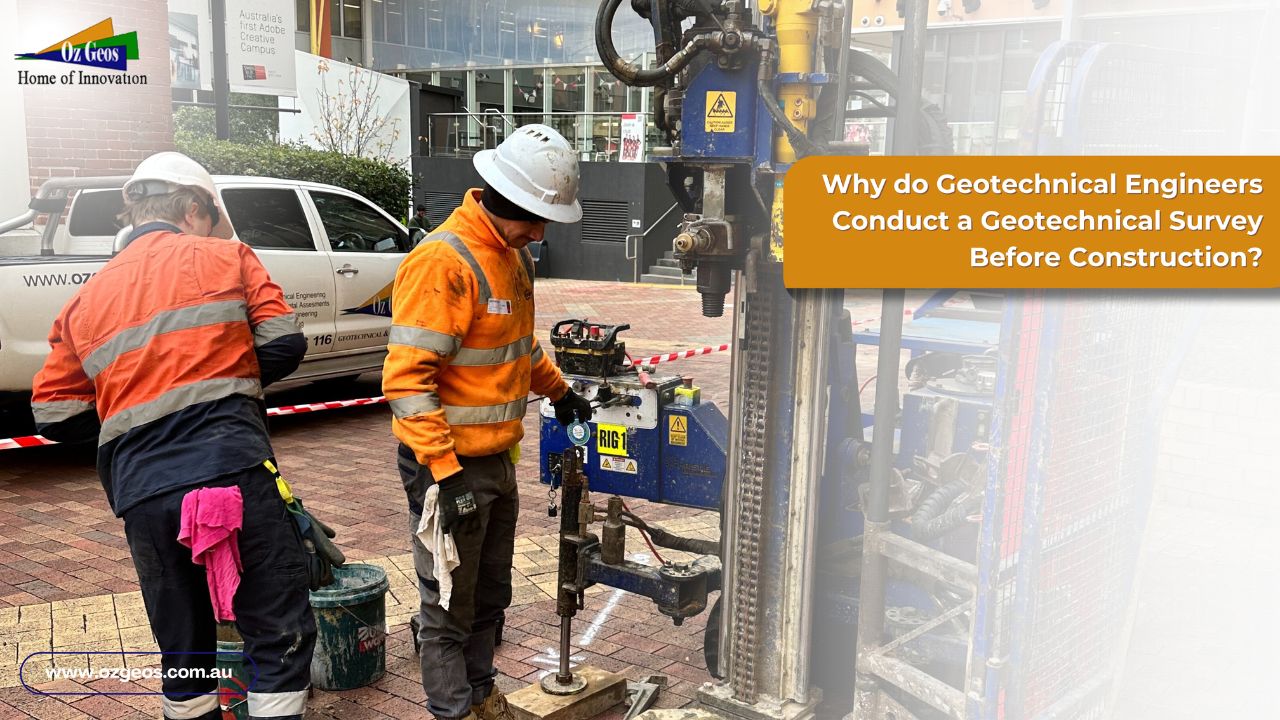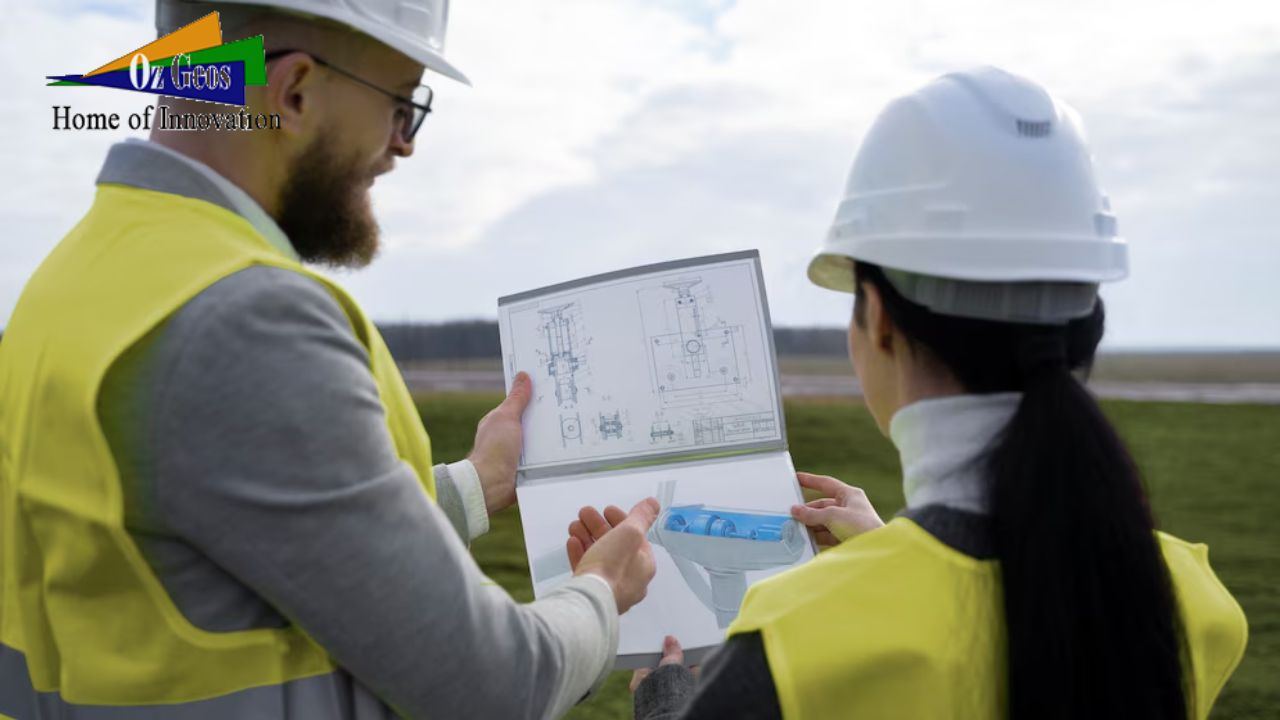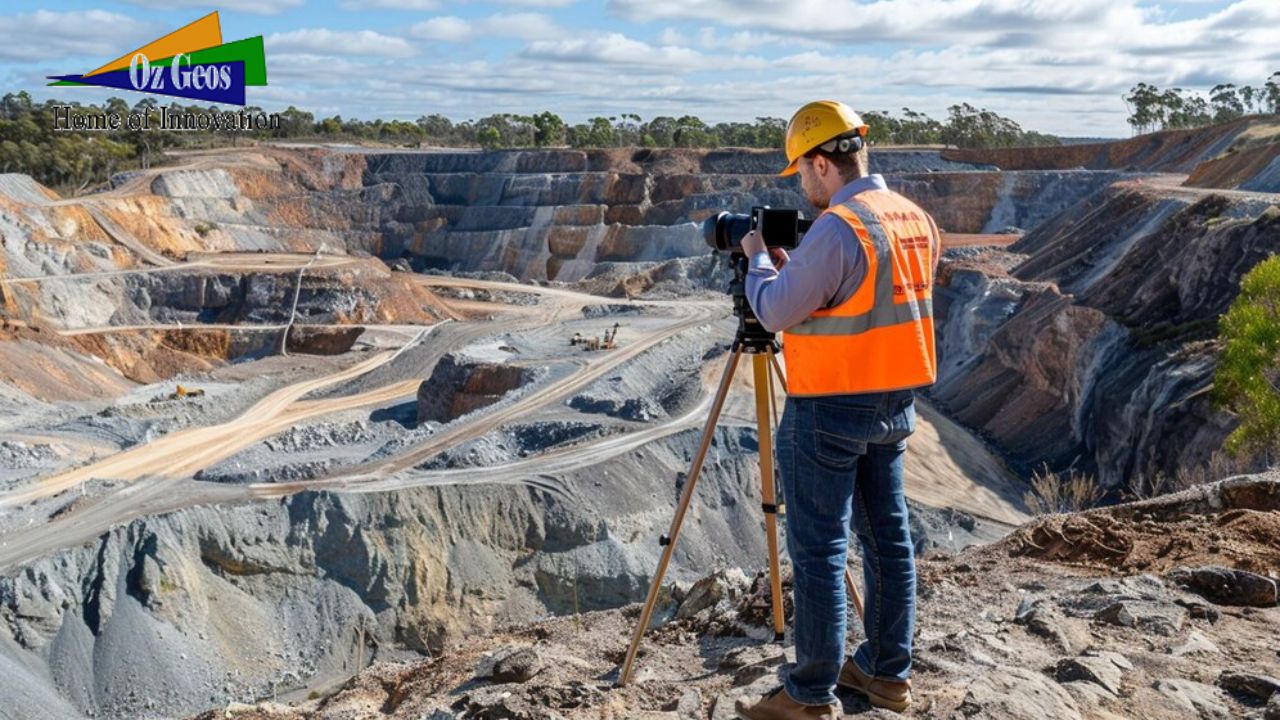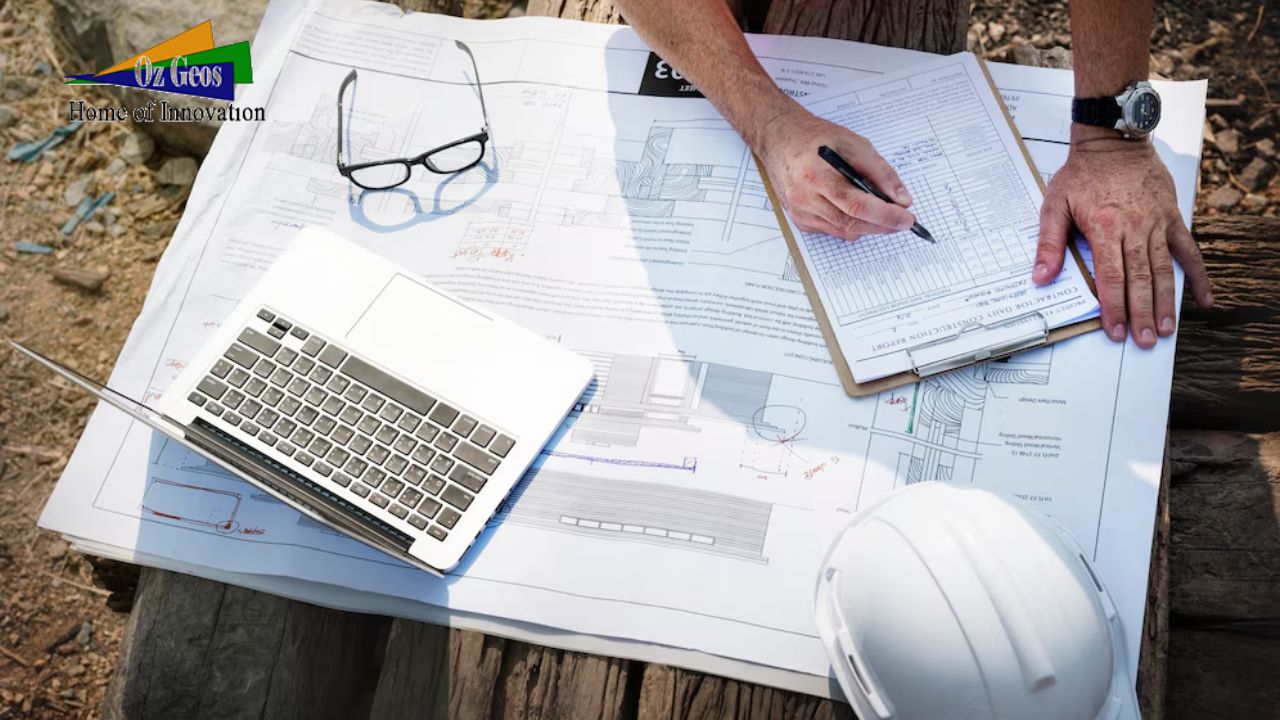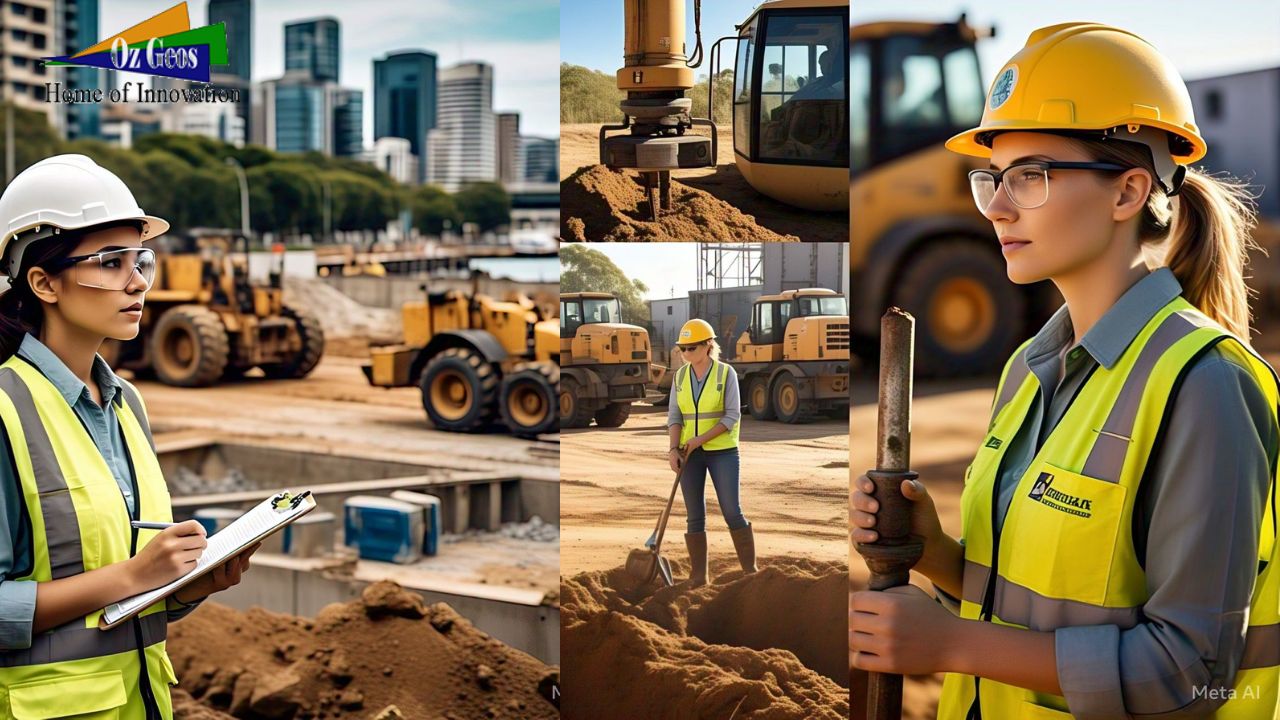Why do Geotechnical Engineers Conduct a Geotechnical Survey Before Construction?
Introduction: The importance of a solid foundation is essential while beginning a construction project, whether it be a grand skyscraper, a big bridge, or a domestic residence. The underlying ground has to be stable and capable of offering sufficient support to allow for any structure to be secure and effective. This is where a geotechnical survey, executed by qualified geotechnical engineers, becomes crucial.
What is a Geotechnical survey?
A geotechnical survey, frequently referred to as a site investigation, is an extensive assessment of the soil, rock, groundwater, and other subsurface characteristics on a construction location. The steps involved assessing the chemical and physical characteristics of the ground in order to assess whether it’s appropriate for the proposed project. Engineers collect essential data that provides design and construction methods through an amalgamation of fieldwork, laboratory analysis, and geotechnical evaluation. However, what is the logic for its necessity?
1. Assessing Soil Stability and Load-Bearing Capacity
A basic objective of doing a geotechnical investigation is to assess the soil’s stability and ability to support the proposed construction. The soil’s characteristics can vary greatly depending on components such as composition, moisture content, and depth. For example, clay soils change shape significantly in response to moisture changes, whereas sandy soils shift and dissolve. A comprehensive geotechnical survey is required to determine the soil type and bearing capacity, allowing for foundation design to deal with potential issues such as settling, shifting, and collapse of structures.
2. Identifying Potential Hazards
Geotechnical surveys have significance to discovering potential hazards to the building project, in addition to evaluating the stability of the soil. Such concerns include the existence of subsurface water, which can cause problems such as soil liquefaction, erosion, and flooding. Other possible issues include sinkholes, underneath voids, and contaminated soil. Recognizing these risks early on enables architects and construction professionals to modify their designs, implement necessary mitigation strategies, or even reevaluate the appropriateness of the site for construction.
3. Guiding Foundation Design:
The geotechnical examination findings have an important impact on the type of foundation needed for the building project. Shallow foundations, like footings, are appropriate for stable soils with high load-bearing capacity. Deep foundations, including piles, must be used for soils that are weaker or more variable. In addition, the survey gives important data about the foundation’s depth, size, and materials. Geotechnical engineers play a significant part in lowering the likelihood of differential settling or foundation unsteadiness, consequently protecting the integrity of the structure.
4. Ensuring Compliance with Building Codes and Standards
Local building rules and regulations frequently require geotechnical surveys. Inspections like these make sure construction projects fulfil safety regulations. It reduces responsibility for both builders and developers. Neglecting this crucial phase could result in legal and financial consequences, particularly if the structure fails to satisfy security requirements or develops difficulties after construction.
5. Optimising Project Costs and Time
A geotechnical survey is an initial expense that may end up in considerable long-term time and cost benefits. By understanding about the ground conditions at the beginning of a project, the risk of experiencing unexpected challenges during construction decreases significantly. This proactive approach helps avoid costly delays, redesigns, and foundation repairs that might arise from unplanned subsurface conditions.
Conclusion Local building rules and regulations frequently require geotechnical surveys. Inspections like these make sure construction projects fulfil safety regulations. This reduces both the builders’ and developers’ responsibility of self surveys. Neglecting this crucial phase could result in legal and financial consequences, particularly if the structure fails to satisfy security requirements or develops difficulties after construction.

